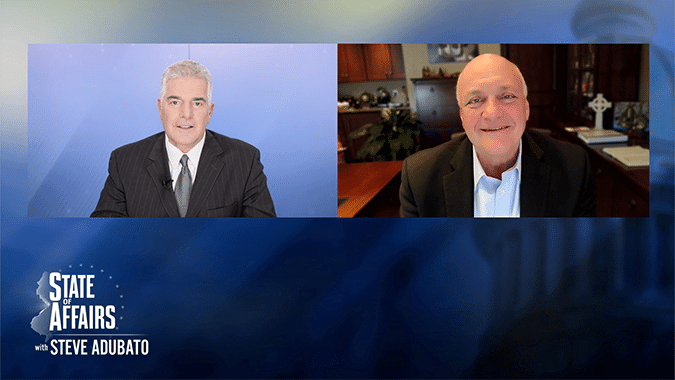NJBIA and a group of leading healthcare associations are urging Gov. Phil Murphy and the Legislature to take important steps to assist the healthcare industry as it faces increasing workforce challenges amid state vaccination mandates in their field.
In a letter sent to the lawmakers and some of Gov. Murphy's cabinet, the groups said workers who leave their positions or are let go for not complying with the vaccine-or-test mandate found in Executive Order 252 will further challenge essential healthcare providers that are already understaffed.
The signatories included the Health Care Association of New Jersey, the New Jersey Association of Mental Health & Addiction Agencies, the Homecare and Hospice Association of New Jersey, the New Jersey Dental Association and LeadingAge Delaware & New Jersey.
“We fully support the role of vaccinations in curbing the spread of coronavirus and embrace our role in ensuring that members of our workforce are vaccinated as they continue to treat our most vulnerable residents and patients,” they wrote.
“However... it is critical that the state recognize that employee retention in all fields of healthcare is an integral component of our ongoing efforts to provide necessary care and services to patients. Many employers are concerned with the potential for an employee exodus from healthcare if workers choose to leave for another industry that is not subject to a mandatory vaccination or testing policy.”
Among the requested steps from the groups to the policymakers are investments in workforce development for the healthcare industry through “the use of both American Rescue Plan Act funds and increased funding to the State’s Medicaid payment system to combat worker shortages.”
“Furthermore, we seek additional funds be directed towards childcare solutions as we support return to work efforts as our economy continues to recover from the pandemic,” they said.
Federal funds are also being requested by the groups to offset the cost of testing for unvaccinated employees “similar to the state’s commitment of federal funds to schools to cover the cost of mandatory testing protocols.”
The groups also strongly urged Gov. Murphy and the Legislature to “send a clear message to the workforce that a termination as a result of refusing to get vaccinated or submit to routine testing will render employees ineligible for unemployment benefits.”
“Termination as a result of refusing vaccination and testing constitutes a refusal to work and to comply with a condition of employment which has historically rendered employees ineligible for benefits,” they said.
NJBIA and the health organizations also requested to extend – or make permanent – temporary waivers issued by the state Department of Health allowing for greater flexibility and discretion in staffing and care delivery services – like telehealth – to help accommodate labor shortages.
They also advocated for supporting a re-evaluation on the limitations on training programs and licensures to allow more flexibility in employment.
To read the full letter, click here.



